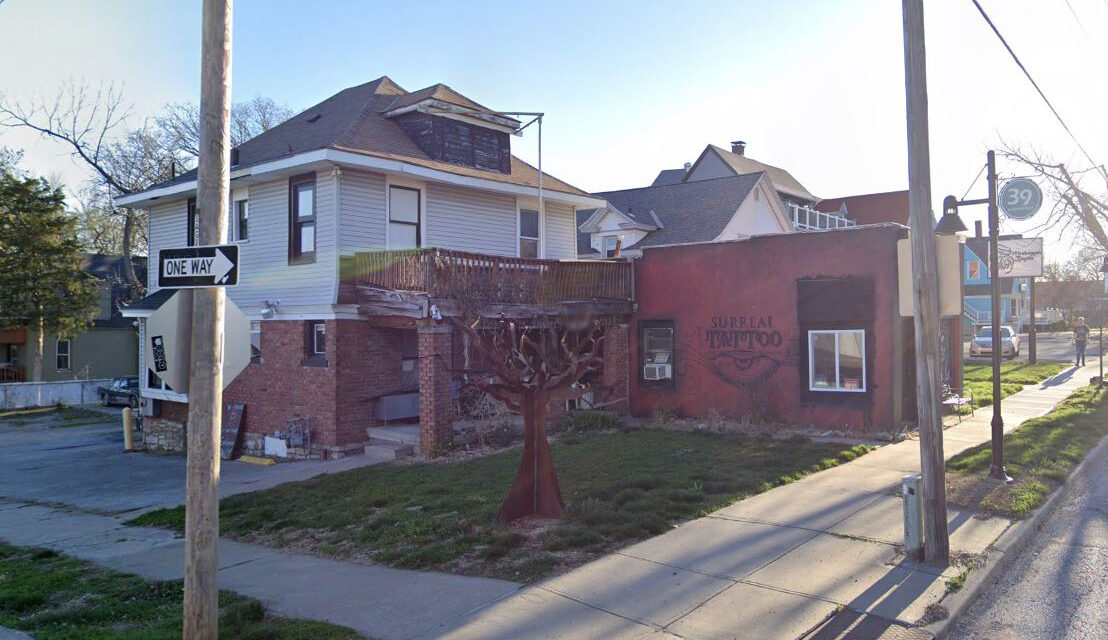What is an ACU? Some consider the neighborhood grocery store to be the smallest increment of brick-and-mortar retail, but I am excited to explore an even smaller increment. The accessory commercial unit, or ACU, ranges between a home-based business in an extra bedroom to a small shop or office. You have likely heard of an ADU, an accessory dwelling unit, or “granny flat.” An ACU is similar in that it’s an accessory to a main house while offering more affordable space with neighborhood-friendly gentle density, but in a way that caters to local business owners. An ACU is more or less the next incremental step up from a home-based business that had its start in a spare bedroom or garage.
The future for commercial real estate is changing as downtowns and commercial nodes experience disruption due to the COVID-19 pandemic. Thirty percent of respondents from Arkansas for the recent Census Bureau’s Small Business Pulse Survey indicate that this pandemic has had a “large negative effect” on their business, with another 50 percent indicating a “moderate negative effect,” 5 percent higher than the national average.
More broadly, the office sector is adapting to changes and recommendations by the Centers for Disease Control and Prevention. Some firms are deciding it is easier to allow employees to remain at home. The retail sector in particular has seen significant upheavals even before this current challenge.
Arkansas has a history of town squares and Main streets that tend to host smaller and local scale businesses. Rightfully, there is concern about how our local businesses will fare through all this and thought is being put into how we can support our downtowns.
Overall, the message is that commercial real estate is becoming more dispersed and that many of the outcomes of these changes are likely to remain into the foreseeable future. This sort of disruption will cause many of these small business owners to look for different, and less expensive, commercial space located closer to workers’ homes.
A few positive attributes of ACUs come to mind:
*Opportunity to participate. ACUs provides an opportunity for small, local property owners to participate in providing options for local businesses as they adapt.
*Less expensive construction. In any new construction of these types of spaces the building code requirements will be less expensive and cumbersome. So, while the building code will require any commercial space to install sprinklers, the property owner will be able to avoid having to sprinkle the residential units behind. It’s when a design stacks residential and commercial uses that the building code requires the residential to be sprinkled, even if just a couple of units.
*Save older buildings from demolition. In many communities, as land values increase, demolitions of older structures are a concern. Redevelopment/reinvestment starts to be considered when a building value begins to equal the value of the land it sits on. If repairs and maintenance exceed the economic value of the building, the options are to let it fall into disrepair or redevelop. Allowing an ACU increases a building’s financial productivity and therefore its economic value and pushes the property’s potential redevelopment timing further out.
Typically, businesses prefer to be located on commercial corridors and higher-volume streets for increased visibility, yet the real beauty is that ACUs are an option that can also be neighborhood street-friendly for businesses that may not require as much visibility. Neighborhood-friendly local businesses include bicycle shops, tailors, barbershop/salon, tech/software related, insurance offices or even ultra-light manufacturing like screen printing or T-shirts.
Finally, these building types could be particularly useful on trafficked corridors with an existing residential built pattern. This has the potential to save existing, often less expensive rental housing while creating attractive and active street frontage and providing visibility to the businesses in front.
The examples being shared here are historic and in areas already zoned for commercial uses, so some challenges clearly remain. Following are some primary concerns and takeaways for city officials looking to explore an ACU option:
*In locations deeper in the neighborhood, small, neighborhood-friendly businesses will first simply need to be allowed.
*Updated zoning will need to allow ACUs to also have reduced front setback and increased lot coverage in order to maximize limited available space.
*Also, for commercial spaces of such small square footage, parking should not be required, as many will have readily on-street parking options or will be accessed via foot and bicycle.
*The first local property owners will likely need to build with cash or equity because appraisers will not have recent transactions to compare to. As more get built and sold, ACUs will become normalized like any other real estate product. Some incentive may be considered to help offset this financial burden, particularly as these building types contribute to economic recovery.
In many ways the ultimate neighborhood-friendly gentle density option would have the main house, a backyard ADU as much needed less expensive housing and a front yard ACU that responds to the changed needs of local small business owners.
Do you have ACUs in your city? I would love to see more examples and how they are being used.
Neil Heller is an urban planner at Neighborhood Workshop in Portland, Ore., and faculty member of the Incremental Development Alliance. He’s an alumnus of the University of Arkansas and previously worked in urban planning in Fayetteville.



